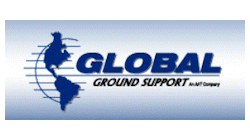There is nowhere in the world that has seen the type of tremendous growth that is currently happening in China's aviation industry. "China's soaring aviation industry is expected to double its transport volume over the next five years," said Gao Hongfeng, deputy director of China's General Administration of Civil Aviation.
The conservative estimates are that China will purchase almost 3,000 new commercial aircraft over the next 20 years, quadrupling the country's current fleet. This will require airport expansions and major infrastructure improvements, but it will also mean that the Civil Aviation Administration of China (CAAC) and the airlines must ensure that the ground support equipment is available to service the airlines and its customers. In order to do long term business in China, a company's philosophy must continue to partner with the airlines and airports to provide both the equipment and the training so that they can achieve the maximum in productivity and cost savings.
Global Ground Support, LLC delivered its first deicer to China in 1994. Over the last 12 years we have had the opportunity to develop strong relationships with both the airlines and the CAAC. This led to 2005/06 being our best year ever in China with a total of 29 deicers delivered. The biggest change from the purchases in previous years was the move towards new cutting edge technologies that give the airlines better productivity while reducing glycol consumption. A large percentage of last year's deicer sales included our exclusive "AirPlus" system.
The "AirPlus" system utilizes a hydraulic actuated supercharger to produce high volume, low pressure forced air at over 700mph (1127kph). This system can remove frozen contamination with an average glycol reduction of 30–70-percent. With today's escalating glycol costs and a greater focus on the environmental impacts of deicing in China, the "AirPlus" system is the obvious choice. Even with the benefits of the "AirPlus" system, we have seen that our customers in China and the U.S. request technologies that would further reduce glycol consumption.
In 2006, Global developed the "Premium Blend" in-truck glycol blending system. A majority of airlines worldwide use a fixed glycol/water (50/50) blend for deicing. This allows most airports to deice all season without having to change the percentage of glycol. While a fixed blend system offers protection for all but the coldest of temperatures, most of the time and at a majority of locations, it is a waste of fluid and money. A two-year study of deicing operations at Chicago O'Hare International Airport showed that over an entire season the glycol percentage required was 25-percent to a 50-percent savings. The savings for warmer airports would be much greater.
The trick is being able to adjust the glycol percentage to meet the temperature requirements. Global Ground Support's "Premium Blend" system uses separate water and neat glycol (100-percent) tanks and automatically blends the two to achieve the freeze point buffer set by the operator. The unique thing about the Global system and the reason the customers in China are so enthusiastic is that the deicer automatically purges itself with a 50/50 blend when shut down. This eliminates concerns about critical pumps, valves and hoses from freezing and damaging the trucks deicing system and the requirement to plug the units into an external power source for freeze protection.
While the savings in glycol gets everyone's attention initially, some airports charge even higher fees per gallon for remediation of the sprayed glycol. The combination of glycol savings and reduced environmental impact offer a package that is very attractive to the airlines in the cost conscious world of "ROI". As I head back to China next week I will continue to enjoy this wonderful and unique country and all of the friendships I have had the good fortune to make.





